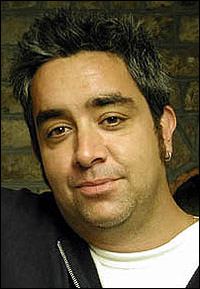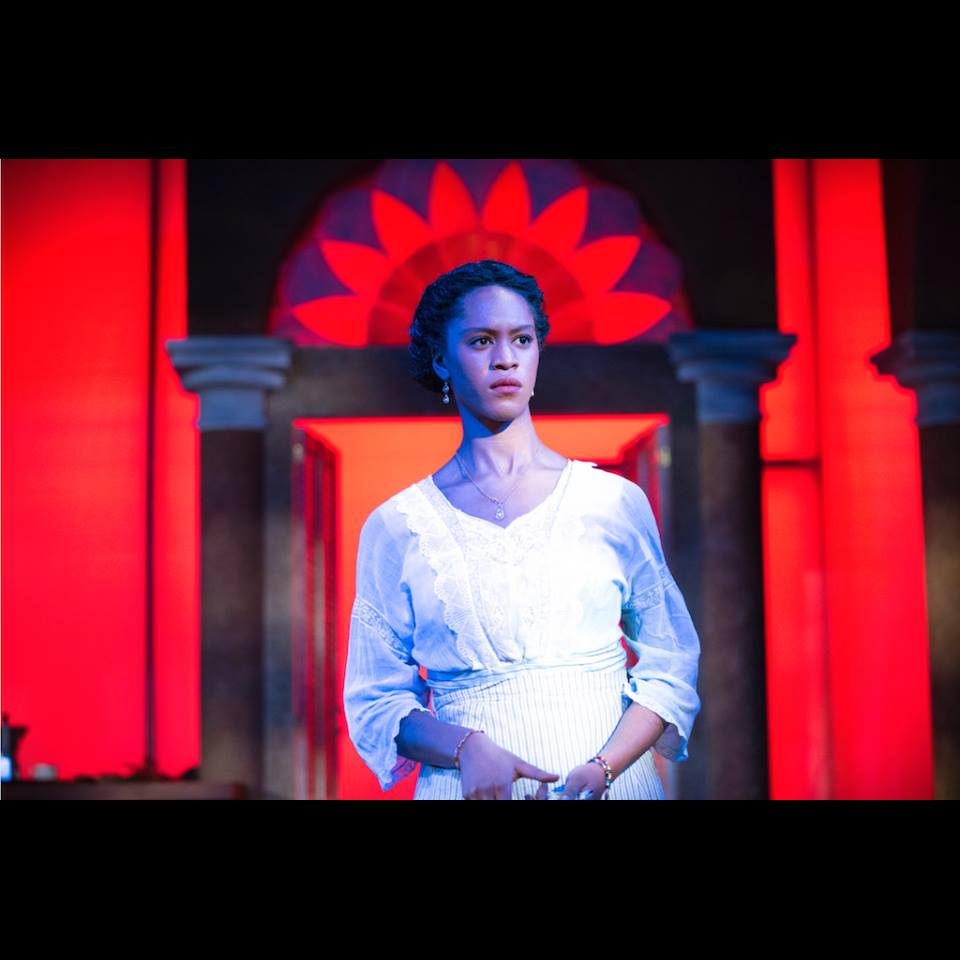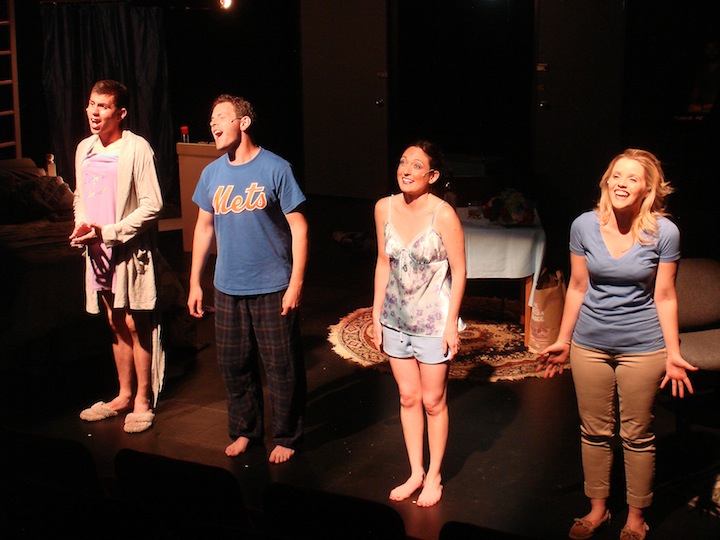 |
| Stephen Adly Guirgis’s The Last Days of Judas Iscariot opened in New York in 2005 at LABrynth with Philip Seymour Hoffman directing and Eric Bogosian as Satan. |
Not being familiar with Stephen Adly Guirgis’s play The Last Days of Judas Iscariot I thought at first that the Alley Theatre was taking a potentially controversial step by opening on one of the holiest days on the Christian calendar. What I saw last night was, however, an unorthodox, but and interesting theological, psychological, sociological examination of questions surrounding the story of Christ’s betrayal. Guirgis extends the idea of humanity’s Free Will to the afterlife, but never reaches his conceit’s absurd breaking point. Although it ran to generally positive reviews in New York and was warmly received in London in 2008, the play still needs a good editing and some rewrites if it is ever to reach its potential.
From an audience perspective TLDOJI is just too long and repetitive. Alley Theatre’s opening night production ran 3 hours, 15 minutes including an intermission. Director Todd Zeigler and his cast will, one hopes, pick up the pace. What the play really needs, however, is the elimination of entire monologues and the condensation of others. There is a point in the process of writing a play during which the playwright throws in every idea he or she has developed: “the kitchen sink phase” if you will. From that hodgepodge of ideas a writer winnows and cuts to create a narrative arc, define characters and hone the storyline. It is, I understand the most difficult step in the process because it means throwing out really good stuff. This step is what is currently missing from Guirgis’s work.
As it stands TLDOJI is an actor’s dream; a series of dramatic monologues giving a performer plenty of opportunities to demonstrate their emotional range. Most of the actors in the Alley Theatre production delivered effective, occasionally inspired performances, that lacked the commitment needed to make them great. One of the early criticisms of this work, which unashamedly “Americanizes the afterlife,”is that it is at times “too New York,” and last night’s characterizations did tend toward the jerseylicious at times. The production as a whole seemed slightly underlighted and actors were too often delivering their lines in the shadows. I could have also wished for a more intimate staging, which would also have picked up the pace by reducing the actors’ travel time. The production benefitted from Rachel French’s costumes which were a bit literal, but very well realized.
The American approach to ideas related to God and creation is often adversarial and territorial. The playwright, who has written for and appeared in a number of popular television courtroom dramas uses this proclivity as a jumping off point by setting the scene in a greater-Purgatory court where opposing council attempt to settle the fate of Judas Iscariot as he sits in a catatonic stupor on the ninth level of Hell.
Mr. Guirgis obviously had a good time creating the character of Satan and Jon Adams’s interpretation of the ultimate betrayer as a street smart wise guy was spot on. As Satan Adams has some of the best dialogue in the play and gives us a cool, understated, sympathetic creature free of stock ominous overtones. As the title character Brandon Cox spends much of the play staring into space. This is a real test of an actor’s ability and Cox remained an empathetic character throughout, setting himself up well to tell Judas’s story late in the second act. His revelatory scene with Jesus (Timothy Brown) toward the end of the play was well paced and dramatic. It was also the playwright’s most openly evangelical moment of the evening. Brown’s Jesus was ready for framing: tall, Anglo, restrained and beneficent throughout.
Originally conceived for actors to play multiple roles Zeigler has pared that aspect down a bit, so that the Alley production boasts a prodigious cast, some of whom appear for only a single monologue. One of these is John Hetzel who delivers a fine performance as Caiaphas the Elder. Dan Canon does a wonderful job providing new perspectives on Pontius Pilate and has a well-written, well performed absolutely superfluous coda as jury foreman Butch Honeywell. Tony Smith as Egyptian Prosecutor Yusef El-Fayoumy (a nod to the playwright’s paternal heritage) and Meg Caudill as defense council/crusader Fabiana Aziza Cunningham serve as the binding agents of the play. Both actors carry the weight effortlessly and deliver uniformly enjoyable performances. I wish there had been more for Chris Petty to do. As Bailiff and Soldier his roles were functionary, but his turn as Simon the Zealot was exceptionally authentic. Finally I should not fail to mention Madeline Miller’s turn as Saint Monica the foul-mouthed mother of Church Father Saint Augustine. This is one of the most exposed roles in the production and Miller carried it off well. With more time she may add the texture to her interpretation that would turn this character into someone memorable.
The Last Days of Judas Iscariot continues at the Alley Theatre, 1205 East Washington Street at The Pointe, through April 30 with a special performance on Easter Sunday at 8 p.m. Tickets range from $15–$18 for general admission and may be purchased in advance: 502.713.6178 or www.TheAlleyTheatre.org. Discounts are available for groups of 10+.




